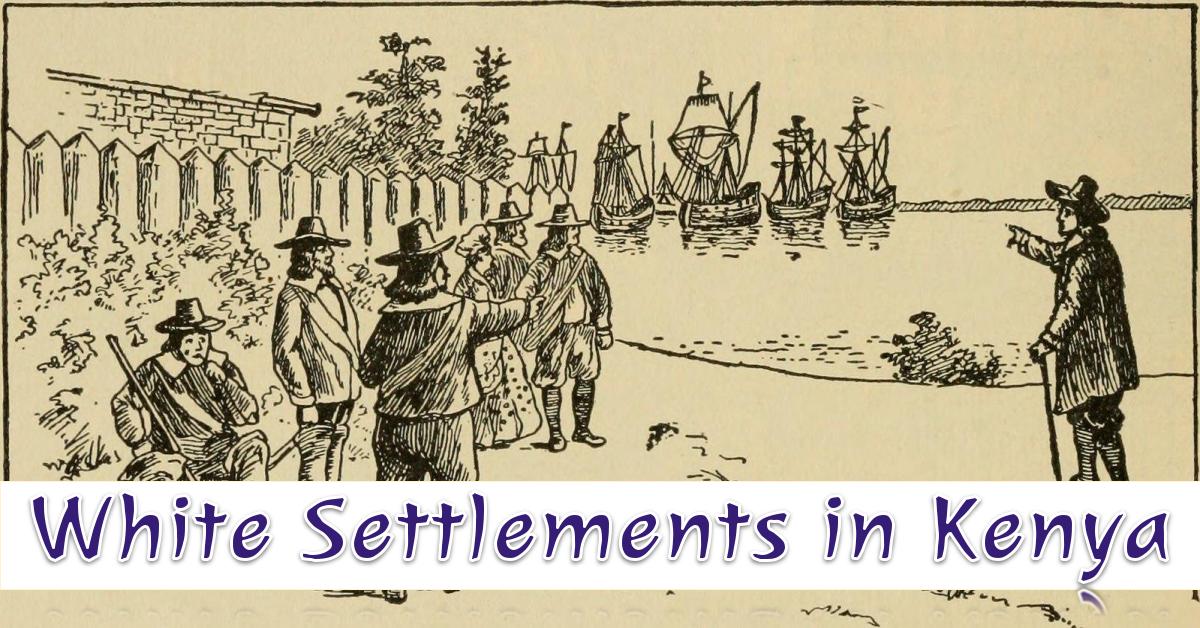🌍 Settler Farming & Colonial Land Policies in Kenya �
The colonial government encouraged white settlement in Kenya’s ‘White Highlands’ as a revenue strategy to:
- 💰 Cover administration costs
- 🚂 Maintain the Uganda Railway
- 🌱 Develop export-oriented agriculture
🛠️ Colonial Government Support for Settlers
🚆 Transport
Efficient railway network connecting coast to interior
🏞️ Land Alienation
Reserved White Highlands for European settlement
📢 Promotion
Advertised free land in foreign newspapers
💵 Financial
Provided loan incentives and credit facilities
🛡️ Security
Maintained security in settler areas
🎯 Why Colonial Government Encouraged White Settlement
- 1 Revenue generation for administration & railway maintenance
- 2 Provide cheap raw materials for British industries
- 3 Counter Asian immigration and influence
- 4 Make Kenya a “white man’s country”
- 5 Kenya Highlands’ favorable climate and fertile soils
- 6 Resettle European social misfits and landless
- 7 Presence of willing entrepreneurs (Lord Delamere, Captain Grogan)
📈 Factors Promoting Settler Farming
👨🌾 Land Policies
Alienation of African land created cheap labor pool
🚜 Crop Restrictions
Africans barred from growing certain cash crops
🛣️ Infrastructure
Railway, roads and bridges built for transport
🚛 Reduced Freight
Lower transport costs for agricultural goods
🤝 Cooperatives
Processing and marketing support systems
🏦 Finance
Credit facilities through banks and AFC
🔬 Research
Department of Agriculture and research stations
📜 Concessions
Trade tariffs removed for settlers
⚠️ Challenges Faced by Settlers
👷 Labor Shortage
Africans resisted working on settler farms
⚔️ African Resistance
Raids by Nandi, Maasai and Agikuyu
🌾 Farming Knowledge
Many settlers lacked agricultural experience
💰 Capital Shortage
Difficulty procuring farm inputs and machinery
🌦️ Climate Adaptation
Unfamiliarity with local seasons and conditions
🛣️ Poor Transport
Inadequate road network in some areas
🛒 Market Issues
Unreliable foreign markets for perishables
🐜 Pests & Diseases
Crop, animal and human diseases prevalent
🌱 Major Settler Crops
🐄 Livestock Rearing
Lord Delamere’s Experiments
Sheep/cattle rearing at Equator Ranch in Njoro (cross-breeding exotic with local stock)
1925: Kenya Cooperative Creameries
Established due to Delamere’s efforts for dairy farming
Uplands Bacon Factory
Established near Limuru to promote pig rearing
1930: Kenya Farmers Association
Established to support settler farmers
📜 Key Colonial Land Policies
Indian Acquisition Act
Empowered authorities to take land for railway/government use
Land Regulations Act
99-year leases and certificates of occupation
East African Land Order
Defined all unoccupied land as Crown Land
Crown Land Ordinance
Sold/leased land to Europeans at 2 rupees per 100 acres
Maasai Agreement
Created Ngong/Laikipia reserves for settlers
Elgin Pledge
Confirmed Highlands reserved for whites only
2nd Maasai Agreement
Pushed Maasai from fertile Laikipia reserve
Crown Land Ordinance
Land-registration scheme; increased farm sizes
Kenya Annexation Order
Declared Africans as tenants of the crown
Land Commission
Fixed boundaries of African reserves
Native Trust Ordinance
Reserves to belong to Africans permanently
Carter Commission
Fixed White Highlands boundaries, removed Africans
Kenya Highlands Order
Permanently reserved Highlands for Europeans
💥 Effects of Colonial Land Policies
Land Alienation
Africans confined to congested reserves while settlers like Lord Delamere owned over 100,000 acres
African Poverty
Many became squatters or migrated to towns seeking employment
Forced Labor
Taxes and landlessness compelled Africans to work on settler farms
Urban Growth
Displaced Africans migrated to towns, leading to urbanization
Social Disruption
Traditional systems collapsed as women became heads of households
Kipande System
Native Registration Ordinances (1915/1920) controlled African labor movement
Asian Exclusion
Indians restricted to business and urban residences
Political Awakening
Bitterness over land loss fueled African nationalism and political organizing
🔚 Conclusion
The colonial land policies fundamentally transformed Kenya’s socio-economic landscape, creating a settler-dominated agricultural economy while dispossessing Africans of their land. These policies:
- Established racial segregation in land ownership
- Created structural inequalities that persisted post-independence
- Laid foundation for Kenya’s cash crop economy
- Fueled African nationalism and independence movement
UNLOCKED SELF-ASSESSMENT TEST ON TOPIC
Oops! Unlock More Access Rights:
If you find that you are not subscribed, consider upgrading your account or subscribing to the necessary plan to gain access.
Related Tutorials
- Key South African Nationalists and the Liberation StruggleSouth African Nationalists Key South African Nationalists and the Liberation Struggle Prominent Nationalist Leaders Nelson…
- Key South African Nationalists🧭 Table of Contents Key South African Nationalists 1. Key Figures of South African Nationalism Nelson…
- Nationalism in South Africa: Self Assessment TestUpgrade or Subscribe Oops! Unlock More Access Rights: If you find that you are not…
- Nationalism in South Africa🌍 Nationalism in South Africa The development of nationalism in South Africa was uniquely complex…
- Mozambique Nationalism: Self-Assessment TestMozambique Nationalism Quiz Mozambique Nationalism Quiz 🇲🇿 Test your knowledge about Mozambique’s journey to independence….
- Nationalism in Mozambique: The Long Road to Independence🇲🇿 Nationalism in Mozambique: The Long Road to Independence Mozambique was among the last African…
- Unlock Self-Assessment Test: EMERGENCE AND GROWTH OF NATIONALISM IN AFRICAUpgrade or Subscribe Oops! Unlock More Access Rights: If you find that you are not…
- EMERGENCE AND GROWTH OF NATIONALISM IN AFRICA🌍 EMERGENCE AND GROWTH OF NATIONALISM IN AFRICA Key Factors for the Rise of Nationalism…
- Self-Assessment Test: Constitutional Changes in Kenya Leading to IndependenceKenya Constitutional Changes Self-Assessment Kenya Constitutional Changes Self-Assessment Test your knowledge about Kenya’s journey to…
- Constitutional Changes in Kenya Leading to Independence📜 Constitutional Changes Leading to Kenyan Independence 🇰🇪 The Journey to African Representation in the…
- Women in Kenya’s Independence Struggle👩💼 Women in Kenya’s Independence Struggle A Comprehensive Tutorial on Female Heroes of Freedom 🌟…
- Kenya Federation of Labour🇰🇪 Kenya Federation of Labour 🏛️ History, Achievements, and Role in Kenya’s Independence Struggle 📜…
- The Trade-Union Movement in Kenya🇰🇪 The Trade-Union Movement in Kenya 📜 A journey through the history of workers’ rights…
- Kenya African Democratic Union (KADU)🇰🇪 Kenya African Democratic Union (KADU) 🇰🇪 Safeguarding Minority Interests in Kenya’s Independence Struggle 1960-1964…
- African People’s Party (APP)🏛️ African People’s Party (APP) 📚 Kenya’s Political History Tutorial 1 📖 Introduction & Overview…
Discover more from ELIMU ASSISTANT
Subscribe to get the latest posts sent to your email.










